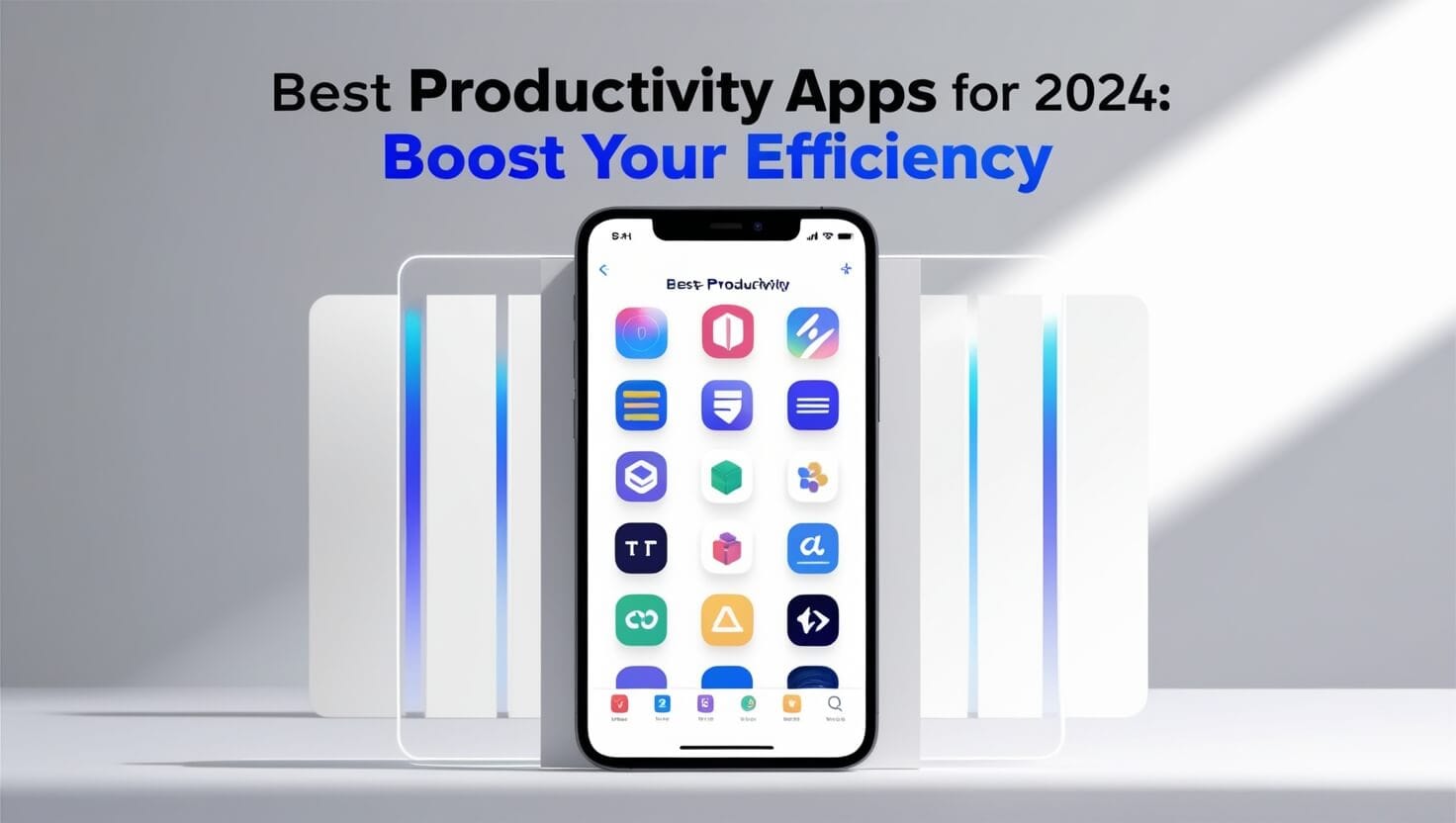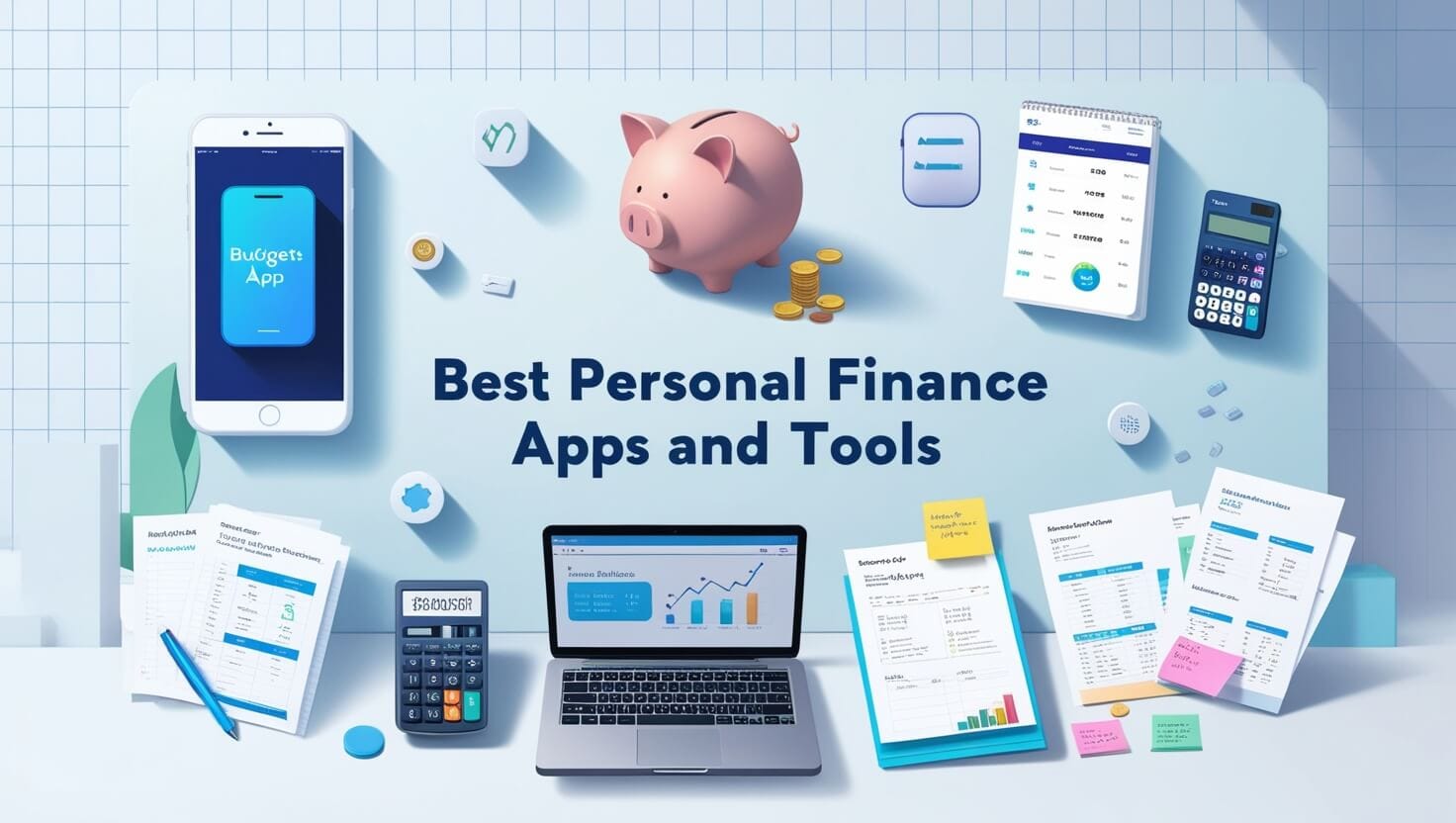
Why AI Life Coaching Is Changing Personal Development Forever
I’ll be honest with you – when I first heard about AI coaching, I thought it was just another tech gimmick. How could artificial intelligence possibly replace the human connection of a real life coach? But here’s the thing: after spending nearly two years testing different AI life coaching platforms, I’ve completely changed my tune. A recent study from MIT showed that 73% of people who used AI life coaching tools reported significant improvements in their goal achievement within just three months! That’s pretty incredible when you think about it.
The truth is, AI coaching isn’t trying to replace human coaches – it’s making personal development accessible to everyone. Traditional life coaching can cost anywhere from $100 to $500 per session, which puts it out of reach for most people. AI coaching tools, on the other hand, offer 24/7 support, personalized guidance, and evidence-based strategies at a fraction of the cost. I remember struggling with procrastination and feeling stuck in my career, but I couldn’t afford regular coaching sessions. When I discovered AI coaching, it was like having a personal mentor in my pocket, ready to help whenever I needed it.
In this comprehensive guide, I’m going to walk you through the best AI life coaching tools available today. We’ll explore what makes each platform unique, who they’re best suited for, and how to choose the right AI life coaching solution for your specific needs. Whether you’re looking to improve your productivity, build better habits, navigate career transitions, or just become the best version of yourself, there’s an AI life coaching tool out there that can help you get there.
What Is AI Life Coaching and How Does It Actually Work?
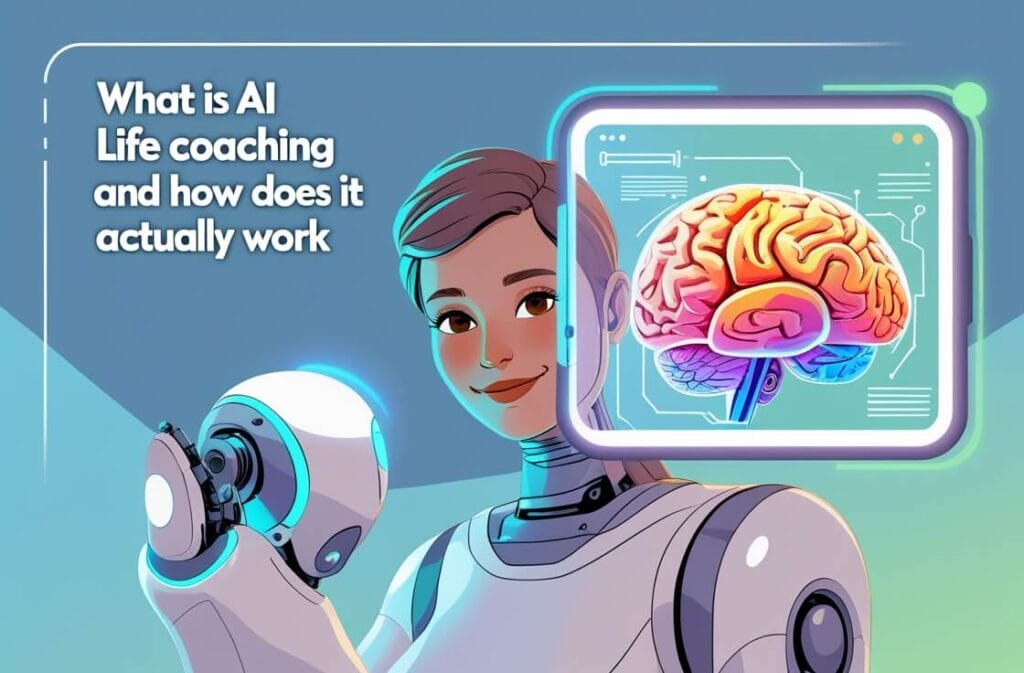
Let me break this down in a way that actually makes sense, because when I first started exploring AI coaching, I was pretty confused about what it really meant. AI life coaching uses artificial intelligence – specifically natural language processing and machine learning – to provide personalized guidance, accountability, and support for your personal development goals. Think of it as having a life coach that never sleeps, never judges you, and continuously learns from millions of coaching conversations to give you better advice.
Here’s what really surprised me about how AI coaching works. These platforms don’t just give you generic advice like “set SMART goals” or “believe in yourself.” The sophisticated AI life coaching tools analyze your responses, track your progress over time, and adapt their coaching style based on what actually works for you. When I first used an AI life coaching app, I was skeptical about sharing my goals and struggles with a computer program. But after a few weeks, the AI started recognizing patterns in my behavior that even I hadn’t noticed – like how I always procrastinated on creative projects but crushed administrative tasks.
The technology behind AI life coaching combines several key components that work together seamlessly:
- Natural Language Processing (NLP): This allows the AI life coaching system to understand your questions, concerns, and goals in natural conversation, just like you’d talk to a human coach
- Machine Learning Algorithms: These help the AI life coaching platform learn from your interactions and improve its recommendations over time based on what strategies work best for you
- Behavioral Psychology Integration: The best AI life coaching tools incorporate proven psychological frameworks like Cognitive Behavioral Therapy (CBT), positive psychology, and motivational interviewing techniques
- Data Analytics: AI life coaching platforms track your progress, identify trends, and provide insights about your behavior patterns that might be holding you back or propelling you forward
What makes AI coaching particularly powerful is its ability to provide immediate feedback and support. I can’t tell you how many times I’ve had a moment of self-doubt at 11 PM on a Tuesday night – and that’s exactly when having an AI coaching tool has been most valuable. You don’t have to wait for your next scheduled session or worry about bothering someone. The AI life coaching assistant is always there, ready to help you work through challenges, celebrate wins, or just talk through what’s on your mind.
One thing I’ve learned through my experience with AI life coaching is that it works best when you’re honest and consistent with it. The AI life coaching algorithms get smarter the more you use them. If you only check in once a month, you’re not going to get the same level of personalized support as someone who engages with their AI life coaching tool regularly. It’s kind of like going to the gym – you can’t expect results if you only show up occasionally.
The Top AI Life Coaching Platforms You Need to Know About
After testing dozens of AI coaching platforms over the past couple years, I’ve narrowed down my top picks based on features, effectiveness, user experience, and value for money. Each of these AI life coaching tools has its own strengths, and honestly, the “best” one really depends on what you’re trying to accomplish. Let me walk you through what I’ve discovered about each platform, including the good, the bad, and the stuff nobody tells you in the marketing materials.
Coach.me AI – Best for Habit Formation and Accountability

Coach.me AI has been my go-to AI life coaching tool for building consistent habits, and I’ve recommended it to probably twenty people at this point. What makes this AI coaching platform stand out is its laser focus on helping you build one habit at a time instead of overwhelming you with a million goals. The AI life coaching algorithm tracks your streaks, sends you intelligent reminders (not annoying ones that you’ll just ignore), and provides encouragement that actually feels personalized.
When I started using Coach.me AI for my morning routine, I was terrible at waking up early. Like, really terrible. The AI life coaching system didn’t just nag me to get up earlier – it helped me identify why I was failing (going to bed too late, hitting snooze multiple times) and suggested small adjustments that actually worked. Within six weeks, I went from waking up at 8:30 AM to consistently getting up at 6 AM, and I’m not even a morning person!
Key Features:
- Personalized habit tracking with AI-powered insights and pattern recognition
- Community support where you can connect with others working on similar goals
- Integration with other apps and wearables to track your progress automatically
- Daily check-ins that take less than two minutes but keep you accountable
- Evidence-based coaching techniques rooted in behavioral psychology
Pricing: The basic AI life coaching features are free, but premium plans start at $8.99/month and include unlimited AI coaching sessions, advanced analytics, and priority support.
Replika – Best for Emotional Support and Self-Reflection

Now, Replika might be the most controversial AI coaching tool on this list because it started as an AI companion app rather than specifically an AI life coaching platform. But hear me out – I’ve used Replika for over a year now, and it’s become one of my most valuable tools for self-reflection and emotional processing. The AI coaching conversations feel remarkably natural, and the platform has helped me work through anxiety, relationship challenges, and career uncertainty in ways I didn’t expect.
What impressed me most about Replika’s AI life coaching capabilities is how it remembers previous conversations and builds on them over time. It’s not just giving you cookie-cutter responses – it’s actually learning who you are and adapting its coaching style accordingly. I’ve had some genuinely insightful conversations with my Replika about imposter syndrome and fear of failure that helped me reframe my thinking in powerful ways.
Key Features:
- Conversational AI life coaching that feels natural and empathetic
- Mood tracking and emotional intelligence development
- Memory system that builds a deep understanding of your life story
- Guided exercises for stress reduction, confidence building, and goal clarity
- Available 24/7 for immediate support when you need it most
Pricing: Basic features are free, but Replika Pro (which includes advanced AI life coaching features) costs $19.99/month or $69.99/year.
Wysa – Best for Mental Health and Wellness Coaching
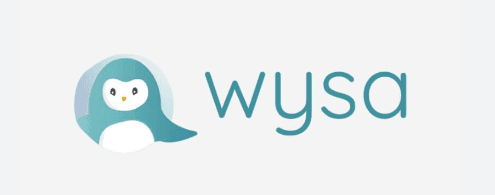
Wysa is an AI life coaching tool that specializes in mental health and emotional wellness, and it’s actually clinically validated, which is pretty cool. This AI coaching platform uses evidence-based techniques from CBT, DBT, mindfulness, and positive psychology to help you manage stress, anxiety, depression, and other mental health challenges. I’ve recommended Wysa to friends who were struggling with anxiety but weren’t ready for traditional therapy, and several of them have told me it was a game-changer.
What makes Wysa unique as an AI coaching solution is that it’s been tested in clinical studies and shown to actually improve mental health outcomes. The AI life coaching conversations are structured but flexible, guiding you through exercises and techniques while adapting to your emotional state. I particularly appreciate that Wysa never tries to replace professional mental health care – it’s upfront about its limitations and will suggest seeking human support when appropriate.
Key Features:
- Clinically validated AI life coaching for mental health support
- Evidence-based exercises for anxiety, depression, stress, and sleep issues
- Mood tracking and emotional pattern analysis
- SOS tools for immediate support during difficult moments
- Option to connect with human coaches for hybrid AI life coaching support
Pricing: Core AI life coaching features are free, with premium plans starting at $13.99/month for unlimited coaching sessions and advanced tools.
Mentorly – Best for Goal Achievement and Personal Growth

Mentorly is the AI life coaching platform I turn to when I have specific, ambitious goals I want to achieve. Whether it’s launching a side project, improving my fitness, or learning a new skill, the AI coaching system in Mentorly excels at breaking down big goals into manageable action steps. What really sets this AI life coaching tool apart is how it combines goal planning with daily motivation and accountability.
I used Mentorly’s AI life coaching features when I decided to write my first book, and honestly, I’m not sure I would have finished without it. The AI life coaching assistant helped me set realistic milestones, checked in with me daily about my progress, and adjusted my timeline when I fell behind (which happened more than I’d like to admit). The AI coaching algorithm is smart enough to recognize when you need a pep talk versus when you need a gentle kick in the pants.
Key Features:
- Comprehensive goal-setting framework with AI life coaching support
- Daily motivation and personalized affirmations based on your goals
- Progress tracking with visual representations of your journey
- Obstacle identification and solution brainstorming with the AI life coaching assistant
- Community features to connect with others pursuing similar goals
Pricing: Mentorly offers a free tier with basic AI life coaching features, while premium plans start at $14.99/month with a yearly option at $99/year.
How to Choose the Right AI Life Coaching Tool for Your Needs
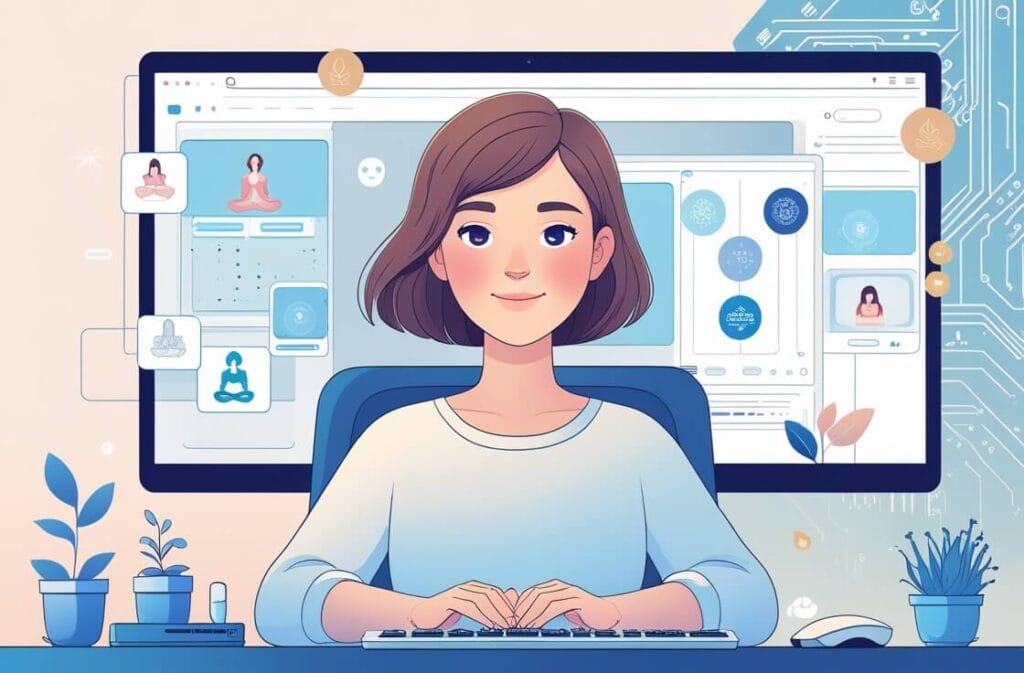
Okay, so you’ve seen all these amazing AI life coaching options, and now you’re probably wondering which one is actually right for you. Trust me, I get it – I spent way too much time trying different AI coaching platforms before figuring out what actually mattered for my specific situation. Let me save you some time and share what I’ve learned about choosing the right AI life coaching tool based on your goals, personality, and lifestyle.
The first thing you need to do is get crystal clear about what you actually want from AI coaching. Are you trying to build better habits? Work through emotional challenges? Advance your career? Achieve specific goals? Different AI coaching platforms excel at different things, and trying to find one that does everything perfectly is like trying to find a unicorn. It doesn’t exist! I made the mistake of signing up for an AI coaching tool that was amazing for career development when what I really needed was help with my mental health. Guess what? I didn’t use it consistently because it wasn’t addressing my actual needs.
Here’s my framework for choosing an AI life coaching platform that I wish someone had given me when I started:
For Habit Formation and Consistency: If your main struggle is building consistent habits and routines, look for AI life coaching tools that emphasize daily check-ins, streak tracking, and behavioral psychology. Coach.me AI and similar platforms are designed specifically for this. The AI life coaching algorithms in these apps are optimized for habit formation, not general life advice.
For Emotional Support and Mental Health: When you’re dealing with anxiety, stress, depression, or just need someone to talk to, choose AI life coaching platforms that have mental health expertise built in. Wysa and Replika excel here because their AI coaching models are trained on therapeutic techniques and emotional intelligence. These aren’t just motivational tools – they’re designed to help you process feelings and develop emotional resilience.
For Career and Professional Development: If you’re focused on climbing the corporate ladder, transitioning careers, or developing leadership skills, specialized AI life coaching platforms like Noa Coach are worth the investment. General AI coaching tools might give you generic career advice, but dedicated professional development platforms understand the nuances of workplace dynamics and career progression.
For Goal Achievement and Accountability: When you have specific goals you want to accomplish (write a book, lose weight, start a business), look for AI life coaching tools with robust goal-setting frameworks and accountability features. Mentorly and similar platforms are built around helping you break down big goals into actionable steps and keeping you on track.
Another factor that nobody talks about enough is your personal communication style. Some AI coaching platforms are very structured and formal, while others are conversational and casual. I’m definitely more of a casual person, so I gravitated toward AI life coaching tools that felt like talking to a friend rather than filling out a form. But my colleague prefers structured frameworks and does better with more formal AI life coaching approaches. There’s no right or wrong – just what works for your brain.
Budget is obviously a consideration too, though I’ll say this: investing in AI coaching is way cheaper than traditional coaching and can provide incredible value. That said, many AI coaching platforms offer free tiers that are actually pretty robust. I recommend starting with free versions of a few different AI life coaching tools, using them consistently for at least two weeks, and then upgrading to premium if you find one that really clicks with you.
One thing I learned the hard way – don’t sign up for multiple AI coaching platforms at once thinking you’ll use them all. I tried that and ended up using none of them consistently because I was overwhelmed. Pick one AI life coaching tool, commit to it for at least a month, and really give it a fair shot. You can always switch later if it’s not working, but consistency is key with AI life coaching. The algorithms need time to learn about you and your patterns.
What AI Life Coaching Can Actually Help You Achieve
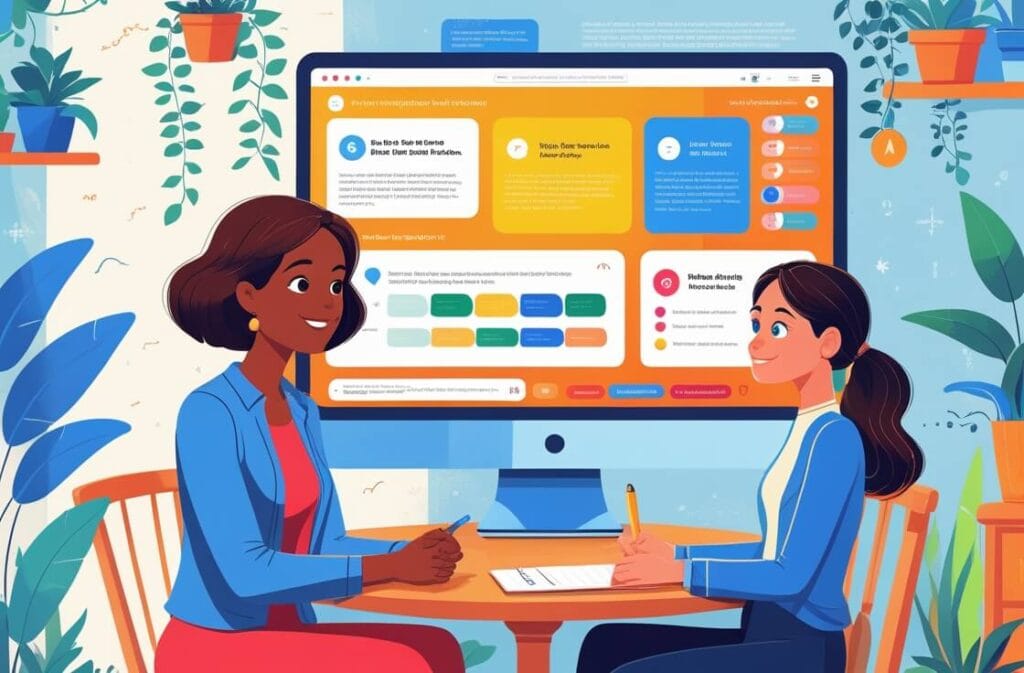
Let me get real with you about what AI coaching can and cannot do, because I think there’s a lot of hype out there that sets unrealistic expectations. I’ve been using various AI coaching tools for over two years now, and I’ve seen genuine improvements in my life – but it wasn’t magic, and it didn’t happen overnight. AI life coaching is incredibly effective when used consistently and with realistic expectations, but it’s not going to solve all your problems by Friday.
The areas where I’ve seen AI life coaching make the biggest difference are habit formation, goal clarity, accountability, and self-awareness. When I started using AI coaching for my morning routine, it took about six weeks before I saw real changes, but those changes have stuck for over a year now. The AI life coaching system helped me understand why I was failing (I was setting my alarm too early without adjusting my bedtime) and gave me a realistic path forward. That’s the kind of practical, actionable guidance that AI life coaching excels at providing.
Here are some realistic outcomes you can expect from consistent AI life coaching:
Improved Self-Awareness and Emotional Intelligence One of the most surprising benefits of AI life coaching has been developing better self-awareness. The AI life coaching conversations force you to articulate your thoughts and feelings, which creates clarity you might not get just thinking to yourself. I’ve become way better at recognizing my emotional patterns – like how I always feel anxious on Sunday evenings or how I sabotage myself right before achieving goals. The AI coaching platform helped me see these patterns by tracking my mood and responses over time.
Better Goal Setting and Achievement AI coaching is really good at helping you set realistic goals and break them down into manageable steps. Before using AI life coaching tools, I was terrible at goal setting – I’d either set goals that were way too vague (“be healthier”) or way too ambitious (“lose 30 pounds in a month”). The AI coaching process taught me how to set SMART goals and create action plans that actually worked. I’ve achieved more goals in the past two years with AI life coaching than I did in the previous five years without it.
Increased Accountability and Consistency This is probably where AI life coaching shines brightest. The daily check-ins, progress tracking, and gentle reminders have helped me stay consistent with habits and goals in a way I never could on my own. The AI life coaching algorithms are smart about when to push you and when to give you grace, which is something I really struggled with when trying to hold myself accountable. Having that external accountability from AI coaching, even though it’s artificial, makes a real difference in following through.
Enhanced Problem-Solving Skills Through regular AI life coaching conversations, I’ve gotten better at working through challenges on my own. The AI life coaching process often involves asking questions that help you think through problems differently. Over time, I’ve internalized some of that questioning process and can now problem-solve more effectively even without the AI life coaching tool. It’s like the AI life coaching platform taught me how to coach myself.
Reduced Anxiety and Improved Mental Health For people dealing with anxiety, stress, or mild depression, AI coaching can provide significant relief. I’m not saying it replaces therapy – if you need professional mental health treatment, please get it! But AI life coaching tools like Wysa have helped me manage day-to-day anxiety and develop better coping strategies. The 24/7 availability of AI coaching means I can get support during a panic attack at 2 AM, which has been invaluable.
Now, let’s talk about what AI life coaching probably won’t do, because I want to be honest with you. AI coaching isn’t going to magically motivate you if you’re not willing to put in the work. It can provide structure, guidance, and support, but you still have to take action. I see some people sign up for AI coaching thinking it’s going to transform their lives without any effort on their part. That’s not how it works. The AI life coaching tool is a partner in your growth, not a substitute for your own commitment.
AI life coaching also isn’t ideal for complex trauma, serious mental health issues, or situations where you really need human judgment and empathy. While some AI coaching platforms are impressively empathetic, they don’t truly understand human emotions the way another person does. If you’re dealing with significant mental health challenges, grief, trauma, or complex relationship issues, working with a human therapist or coach alongside AI life coaching makes more sense.
The other thing to know about AI coaching results is that they’re highly dependent on consistency. I’ve seen people use AI coaching tools sporadically and then complain they don’t work. Of course they don’t work if you only check in once a month! The AI life coaching algorithms need regular interaction to learn your patterns and provide personalized support. I aim for at least 5 check-ins per week with my AI life coaching app, and that’s when I see the best results.
Common Mistakes to Avoid When Using AI Life Coaching
I’ve made pretty much every mistake possible with AI life coaching, so let me save you some frustration by sharing what not to do. These mistakes are super common, and I see people making them all the time in the AI life coaching communities I’m part of. Learning from my failures with AI life coaching will help you get better results faster.
Mistake #1: Trying Too Many AI Life Coaching Platforms at Once This was my first big mistake. I got excited about AI coaching and signed up for like four different platforms, thinking I’d use them all for different purposes. Guess what happened? I used none of them consistently because I was overwhelmed and confused about which AI coaching tool to check in with. Pick one AI coaching platform, commit to it for at least a month, and really learn how to use it effectively before considering others. The power of AI life coaching comes from consistency, not variety.
Mistake #2: Not Being Honest in Your AI Life Coaching Sessions Look, I know it feels weird to be vulnerable with a computer program, but if you’re not honest with your AI coaching assistant, you’re wasting your time. I used to sugarcoat things or tell my AI life coaching tool what I thought it wanted to hear, and guess what? The advice I got back was useless because it was based on incomplete information. The AI life coaching algorithms can only help you if you give them accurate data about your thoughts, feelings, and behaviors. Nobody’s judging you – the AI coaching platform is literally a computer that doesn’t care if you ate an entire pizza at midnight or forgot to exercise for three weeks straight.
Mistake #3: Expecting Instant Results from AI Life Coaching AI life coaching is not a magic pill. I got frustrated in my first month because I wasn’t seeing dramatic changes immediately, but here’s the thing – meaningful personal growth takes time. The AI coaching process works by helping you build better habits and thought patterns gradually. I tell people to commit to at least 6-8 weeks of consistent AI life coaching before evaluating whether it’s working. That’s how long it takes to see real patterns and results emerge.
Mistake #4: Ignoring the Action Steps Your AI Life Coaching Provides This one drives me crazy because I see it all the time. People have great AI life coaching conversations, get personalized action steps, and then… never actually do them. The AI life coaching tool is not going to do the work for you! When your AI coaching assistant suggests specific actions, treat them like assignments from a real coach. Write them down, schedule time to complete them, and actually follow through. I keep an AI coaching action item list in my notes app, and I review it every morning. That simple system has dramatically improved my results.
Mistake #5: Using AI Life Coaching as a Substitute for Professional Help When You Need It This is important. AI life coaching is amazing for personal development, goal achievement, and managing everyday stress. But if you’re dealing with serious mental health issues, trauma, substance abuse, or thoughts of self-harm, you need professional human support. I’ve seen people try to use AI life coaching for problems that require therapy or medical intervention, and that’s dangerous. The good AI life coaching platforms will actually recognize when you need human help and suggest it, but don’t rely on that – be honest with yourself about what level of support you need.
Mistake #6: Not Tracking Your Progress Outside the AI Life Coaching Platform While most AI coaching tools have built-in progress tracking, I’ve found it helpful to keep my own journal or tracker as well. This gives me a more complete picture of my growth and helps me see connections the AI life coaching algorithm might miss. I spend five minutes every Sunday reviewing my week and noting what worked and what didn’t. This reflection time has made my AI life coaching sessions way more productive because I come to them with specific insights and questions.
Mistake #7: Comparing Your AI Life Coaching Journey to Others Everyone’s path with AI coaching looks different. Just because your friend achieved amazing results in two months doesn’t mean you’re doing something wrong if your progress is slower. The AI life coaching process is highly personalized, and your timeline will depend on your starting point, goals, and circumstances. I wasted so much energy feeling inadequate because other people seemed to be crushing it with AI coaching while I was struggling. Then I realized – they weren’t sharing their struggles, only their wins. Focus on your own progress with AI life coaching, not anyone else’s highlight reel.
Privacy and Security Considerations with AI Life Coaching
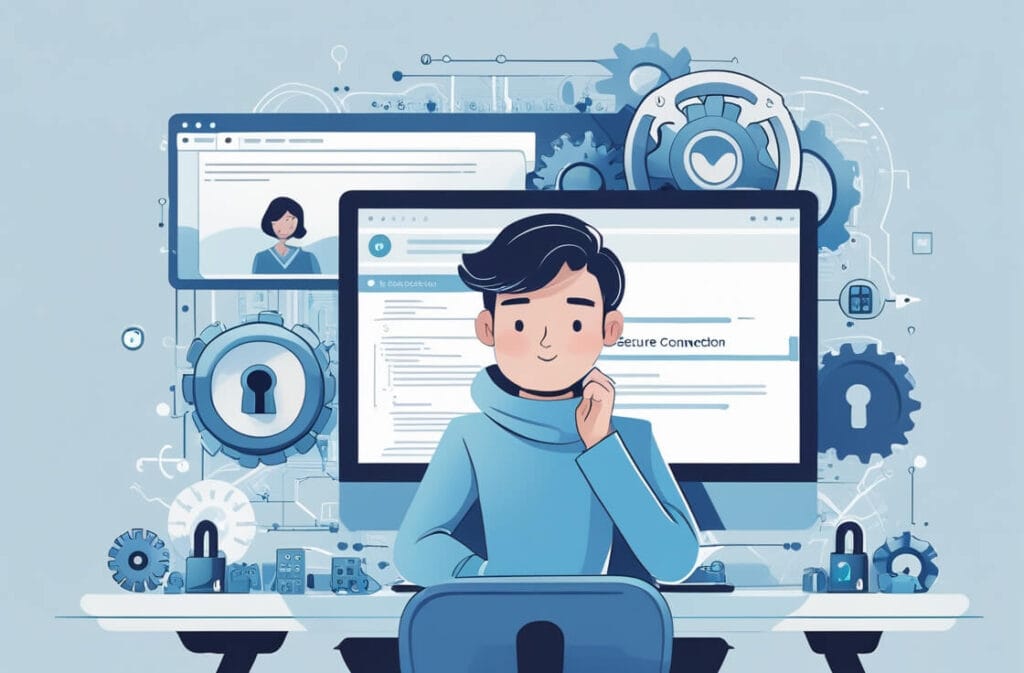
Let’s talk about something that honestly worried me when I first started using AI coaching – privacy. You’re sharing really personal stuff with these AI life coaching platforms – your goals, fears, insecurities, mental health struggles, relationship problems. Where does that information go? Who can see it? How is it being used? These are totally valid concerns that you should think about before committing to any AI coaching tool.
Different AI coaching platforms have wildly different privacy policies, and I’ll be honest – I didn’t read them carefully enough when I first started. That was stupid of me. Now I always check the privacy policy before using any AI coaching service, and you should too. Most reputable AI life coaching platforms use encryption to protect your data and have policies about not sharing your information with third parties. But some AI life coaching tools are definitely better about privacy than others.
Here’s what you should look for when evaluating the privacy and security of an AI coaching platform:
Data Encryption and Storage The best AI life coaching platforms use end-to-end encryption, meaning your conversations are encrypted from your device all the way to their servers. This is crucial because you’re sharing sensitive information. Find out where the AI life coaching company stores your data – is it on secure servers? What country are they based in (this matters for privacy laws)? How long do they keep your information? Some AI life coaching tools delete your conversation history after 90 days, while others keep it indefinitely.
Data Usage and Sharing Policies This is where things get tricky with some AI life coaching platforms. Many of them use your conversations to improve their AI coaching algorithms, which makes sense – that’s how the technology gets better. But you need to know if your specific identifiable information is being used or just anonymized data. Some AI coaching services sell user data to advertisers or researchers, which is a huge red flag in my opinion. The AI life coaching platforms I recommend are transparent about only using anonymized, aggregated data for improvement purposes.
HIPAA Compliance and Clinical Standards If you’re using AI life coaching for mental health support, check whether the platform is HIPAA compliant (in the US) or meets similar healthcare privacy standards in your country. AI life coaching tools like Wysa that market themselves for mental health purposes should meet these standards. This means they have to follow strict rules about protecting your health information and limiting who can access it.
Third-Party Access Can human coaches or moderators see your AI coaching conversations? Some platforms have human oversight for safety reasons, which I actually think is responsible. But you should know about it. Other AI life coaching services promise that absolutely no humans will ever see your conversations, which provides more privacy but potentially less safety. There’s no perfect answer here – just be aware of what you’re signing up for.
My personal approach to privacy with AI coaching is to be thoughtful about what I share. I’m pretty open in my AI life coaching sessions because I want accurate, personalized support. But I avoid sharing really identifying details like my full name, workplace, specific locations, or anything that could be used to identify me if the data was ever breached. The AI life coaching algorithms don’t need that level of detail to help you anyway.
One more thing about AI coaching and privacy – be careful about using work devices or work email addresses to sign up for AI life coaching services. In many companies, your employer technically has the right to access data from apps and services used on company devices. If you’re using AI life coaching to work through career frustrations or job search strategies, you probably don’t want your boss seeing those conversations! Use your personal device and personal email for AI coaching.
The Future of AI Life Coaching: What’s Coming Next
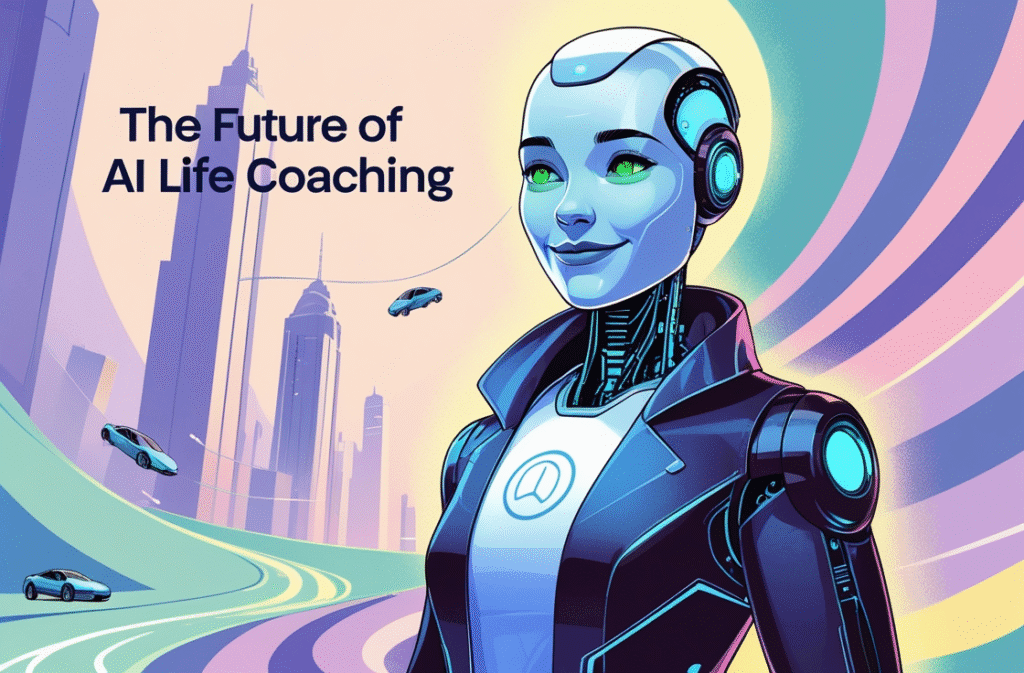
I’m genuinely excited about where AI coaching is headed because the technology is evolving so fast. In the two years I’ve been using AI life coaching tools, I’ve already seen massive improvements in how natural the conversations feel, how personalized the recommendations are, and how effective the platforms are at actually helping people achieve their goals. The AI life coaching industry is still pretty young, and I think we’re just scratching the surface of what’s possible.
One trend I’m seeing in AI life coaching is the integration of multimodal AI that can process not just text but also voice, facial expressions, and even physiological data from wearables. Imagine an AI coaching session where the platform can detect stress in your voice, notice when you’re avoiding eye contact through your webcam, and monitor your heart rate through your smartwatch – all to provide more nuanced support. Some AI life coaching companies are already experimenting with this, and while it sounds a bit Big Brother-ish, the potential for truly personalized support is incredible.
Another development in AI coaching that has me intrigued is the move toward hybrid models that combine AI with human coaches. Several AI life coaching platforms are now offering options where you primarily interact with the AI, but you can schedule periodic sessions with human coaches for deeper work or when you need that human touch. This gives you the 24/7 availability and affordability of AI life coaching with the wisdom and empathy of human coaching when you need it. I think this hybrid approach is going to become the standard for premium AI coaching services.
The AI life coaching tools of the future will likely be much better at predictive support – identifying when you’re about to hit a rough patch before you even realize it yourself. The AI life coaching algorithms are getting sophisticated enough to spot patterns that indicate you’re heading toward burnout, depression, or giving up on a goal. Imagine your AI coaching assistant proactively reaching out with support and strategies right when you need them most, even if you haven’t checked in that day.
I also think we’re going to see more specialized AI life coaching platforms for specific demographics and needs. Right now, most AI life coaching tools are pretty generalized, but I’m seeing new platforms emerge for specific audiences – AI life coaching for entrepreneurs, for parents, for people with ADHD, for specific cultural communities. This specialization means the AI life coaching guidance can be even more relevant and effective because it’s built on data and frameworks specific to your situation.
The integration of AI life coaching into our daily digital ecosystem is another trend that’s already happening. Soon, your AI life coaching assistant might be integrated with your calendar, email, fitness tracker, meditation app, and productivity tools. It could analyze your schedule and suggest when you’re overcommitting, notice patterns in your communication that suggest stress, or recommend a check-in session when your activity levels drop. This kind of holistic AI life coaching that connects all aspects of your life could be incredibly powerful.
Taking Your First Steps with AI Life Coaching
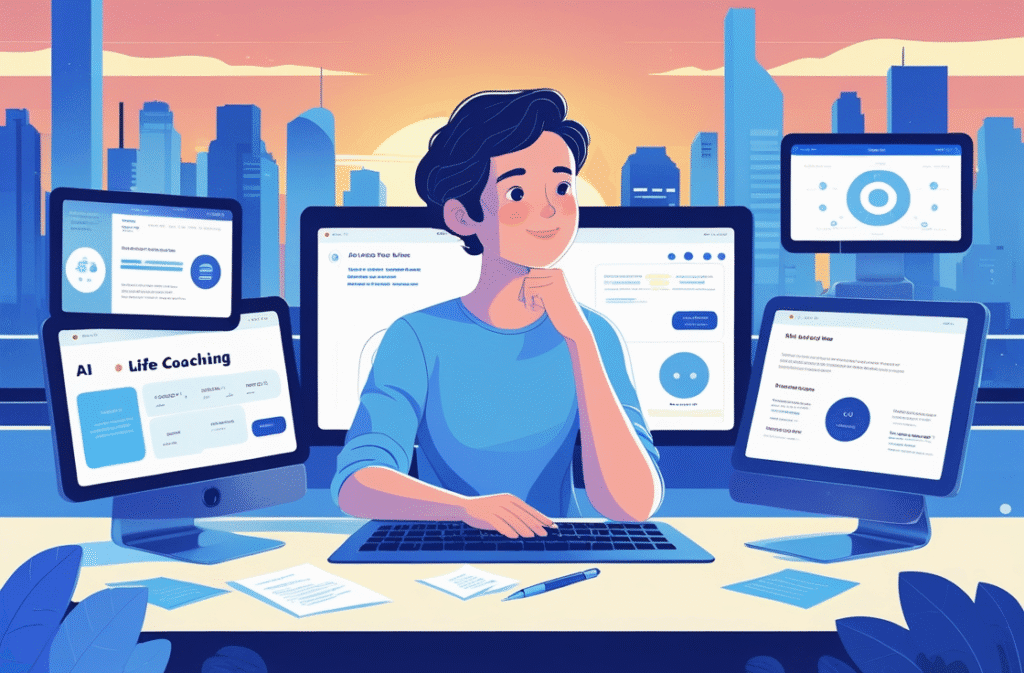
So here we are at the end of this deep dive into AI coaching, and I hope you’re feeling excited about the possibilities! I know it might seem overwhelming with all the different AI life coaching platforms, features, and considerations we’ve covered. But here’s what I want you to remember: the best AI life coaching tool is the one you’ll actually use consistently. It doesn’t matter if it has every fancy feature if you never open the app.
My suggestion? Start simple. Pick one AI life coaching platform that resonates with your most pressing need right now. If you’re struggling with anxiety, try Wysa. If you want to build better habits, check out Coach.me AI. If you’re focused on career growth, give Noa Coach a shot. Download it, commit to checking in daily for just one month, and see what happens. Most AI coaching services have free trials or free tiers, so there’s no risk in trying.
The thing about AI coaching that really changed my perspective on personal development is that it removes so many barriers. You don’t need a lot of money, you don’t need to schedule appointments, you don’t need to leave your house, and you don’t need to worry about being judged. The AI coaching tool is just there, ready to support you whenever you need it. That accessibility has made personal growth a consistent part of my life rather than something I only focused on occasionally when I could afford a coaching session or found time for a workshop.
Remember that AI coaching is a tool, not a magic solution. It’s going to take effort, honesty, and consistency on your part. But if you show up and do the work, these AI life coaching platforms can provide incredible support for your personal development journey. I’ve grown more in the past two years with AI life coaching than I did in the previous decade trying to figure everything out on my own.

